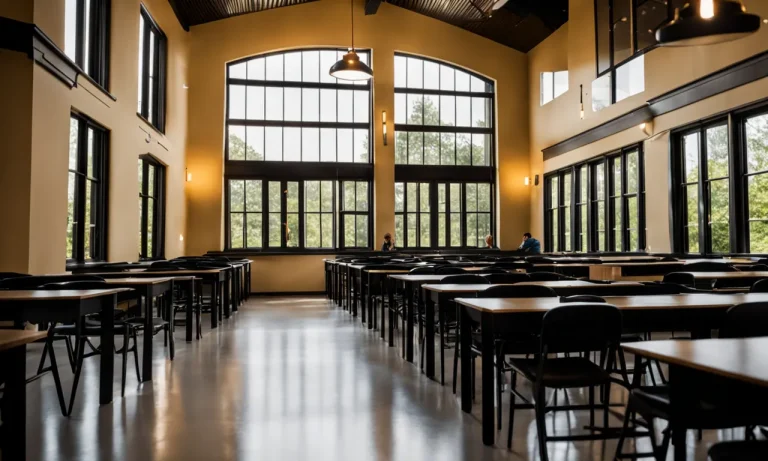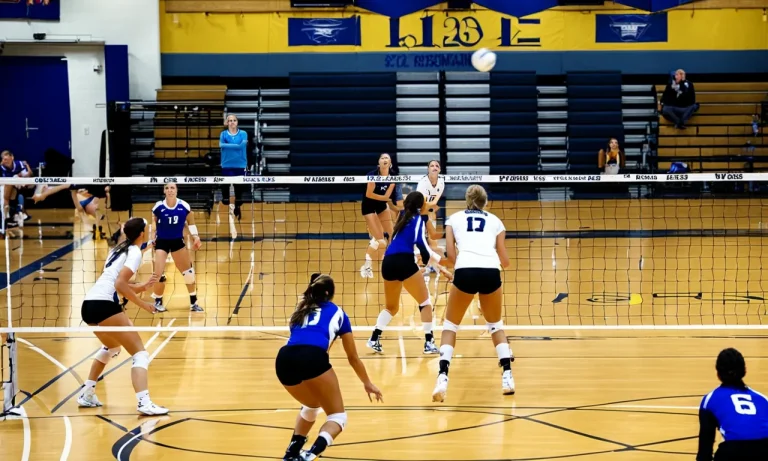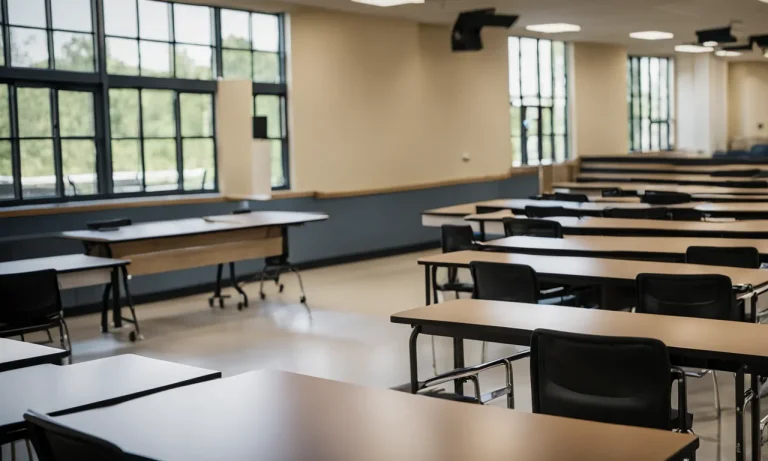Having a high school diploma is an important milestone in life that opens doors to college, jobs, and other opportunities. But what happens if you do something to get your diploma revoked? Can schools take back your high school diploma if you violate school rules or commit crimes after graduating?
Let’s take a closer look.
The short answer is yes, it is possible, but not common, for a high school diploma to be revoked under certain circumstances. A high school may be able to revoke a diploma if a graduate grossly violates school rules or gets convicted of a crime that calls their graduation qualifications into question.
Reasons Why a High School Diploma Could Potentially Be Revoked
Violating School Honor Codes
One of the reasons why a high school diploma could potentially be revoked is if a student is found to have violated the school’s honor codes. Honor codes typically outline acceptable behavior and academic integrity standards that students are expected to uphold.
If a student is found guilty of cheating on exams, plagiarizing assignments, or engaging in any other form of academic dishonesty, it could result in the revocation of their high school diploma. Schools take these violations seriously as they undermine the integrity of the education system and the accomplishments of other students.
View this post on Instagram
Lying About Residency or Grades
Another reason why a high school diploma could be revoked is if a student is found to have lied about their residency or grades. Some students may attempt to enroll in a particular school district by providing false information about their place of residence, in order to gain access to better educational opportunities.
Similarly, students who manipulate their grades by forging report cards or transcripts may face consequences, including the revocation of their diploma. Schools have strict policies in place to ensure the accuracy and reliability of academic records, and any attempts to deceive the system can result in severe consequences.
Plagiarism or Cheating Scandals
Plagiarism and cheating scandals can also lead to the revocation of a high school diploma. If a student is found to have engaged in widespread cheating or been involved in a plagiarism scandal that significantly undermines the credibility of their academic achievements, the school may choose to take action.
In some cases, schools may conduct thorough investigations, involving interviews, document analysis, and even technological tools to detect instances of plagiarism or cheating. The severity of the offense and the impact it has on the integrity of the educational institution will determine the consequences.
Criminal Convictions and Misconduct
In certain cases, criminal convictions and serious misconduct can result in the revocation of a high school diploma. If a student is convicted of a serious crime or engages in behavior that brings significant disrepute to the school, such as violence, drug-related offenses, or other forms of misconduct, the school may decide to revoke their diploma.
While educational institutions focus on providing students with opportunities for growth and development, they also have a responsibility to maintain a safe and respectful learning environment for all students.
It is important to note that the revocation of a high school diploma is not a common occurrence. Schools typically have policies and procedures in place to address these situations on a case-by-case basis, taking into consideration the severity of the offense, the impact on other students, and the overall integrity of the educational institution.
View this post on Instagram
The Diploma Revocation Process
Many individuals wonder if their high school diploma can be revoked after they have already graduated. While it is uncommon, there are certain circumstances in which a diploma can be revoked. The process typically involves an investigation, notification, and a review by the school board.
Investigation and Evidence Gathering
Before a diploma can be revoked, a thorough investigation must take place. This investigation is usually initiated when there is evidence of academic misconduct or fraudulent activities. It may involve reviewing records, interviewing witnesses, and collecting any necessary evidence to support the allegations.
For example, if a student is suspected of cheating on a final exam, the school may gather evidence such as surveillance footage, witness statements, or even compare the student’s work to known examples of cheating.
It is important to note that the burden of proof lies with the school to provide substantial evidence to support their claims before taking any further action.
Notification and Hearing
If the investigation yields enough evidence to support the allegations, the next step in the diploma revocation process is to notify the individual involved. This notification typically includes a detailed explanation of the allegations, the evidence gathered, and the consequences that may follow.
In most cases, the individual will be given an opportunity to respond to the allegations during a hearing. This allows them to present their side of the story, provide any additional evidence or witnesses, and address any concerns raised by the school.
The hearing is usually conducted by a panel or committee, consisting of educators and administrators, who will carefully consider all the evidence presented before making a decision.
School Board Review and Decision
After the hearing, the panel or committee will present their findings and recommendations to the school board. The school board will then review the evidence, consider any mitigating factors, and make a final decision on whether to revoke the diploma.
It is important to note that the school board’s decision is typically based on the severity of the allegations, the strength of the evidence, and the impact of the misconduct on the integrity of the academic institution.
If the diploma is revoked, the individual may have the option to appeal the decision through a formal appeals process, which may involve presenting new evidence or challenging the procedures followed during the investigation and hearing.
While the revocation of a high school diploma is a serious matter, it is important to remember that it is relatively rare. Most individuals can rest assured that their hard-earned diploma will remain a symbol of their achievements for years to come.
Appealing a Diploma Revocation Decision
Request an Internal Review
If you find yourself in a situation where your high school diploma is at risk of being revoked, don’t panic just yet. One of the first steps you can take is to request an internal review from your school.
This involves submitting a formal letter or appeal to the school administration, explaining your situation and providing any supporting evidence that may help your case. It’s important to remain calm and professional throughout this process, as a well-written and thoughtful appeal can significantly increase your chances of success.
During the internal review, the school will carefully evaluate your appeal and consider any additional information or documentation you provide. They may also conduct interviews or meetings to gather more information about the situation.
It’s crucial to be prepared and organized during this stage, gathering any relevant documents, testimonies, or other evidence that can support your appeal. Remember, a strong and compelling case will make it more likely for the school to reconsider their decision and reinstate your diploma.
File a Lawsuit Against the School
If your internal review fails to yield the desired outcome, you may consider taking legal action against the school. This step should only be taken after careful consideration and consultation with a legal professional.
Filing a lawsuit against the school can be a complex and lengthy process, requiring thorough preparation and solid legal grounds.
When filing a lawsuit, it’s important to gather all relevant evidence and documentation that supports your claim. This may include school policies, emails or correspondence with school officials, witness statements, or any other evidence that can demonstrate the unfairness or illegality of the decision to revoke your diploma.
Keep in mind that the specific legal requirements and procedures for filing a lawsuit may vary depending on your jurisdiction. It’s crucial to consult with an attorney who specializes in education law to guide you through the process and ensure that your rights are protected.
Remember, appealing a diploma revocation decision can be a challenging and stressful process. It’s important to remain proactive, gather all necessary evidence, and seek legal advice when needed. With a strong case and the right support, you may be able to successfully appeal the decision and regain your high school diploma.
How Common Diploma Revocations Actually Are
Having a high school diploma is often seen as a symbol of accomplishment and a gateway to higher education and better job opportunities. However, some individuals may wonder if their hard-earned diploma can ever be revoked.
While it is possible for a high school diploma to be revoked in certain circumstances, such instances are relatively rare.
Reasons for Diploma Revocation
Diploma revocations typically occur due to serious violations of academic integrity or unethical behavior. Instances of academic dishonesty, such as cheating on exams or plagiarizing coursework, can lead to diploma revocation if discovered after graduation.
View this post on Instagram
Similarly, if a student is found to have engaged in unethical behavior, such as bullying or harassment, their diploma may be revoked as a consequence.
It is important to note that diploma revocations are typically reserved for severe cases where the misconduct significantly undermines the integrity of the education system or violates ethical standards.
Schools and educational institutions have strict policies and procedures in place to handle such situations, ensuring fairness and due process.
Rarity of Diploma Revocations
While diploma revocations do happen, they are relatively uncommon. The vast majority of high school graduates who have earned their diploma can rest assured that their accomplishment is permanent and cannot be taken away from them.
Diploma revocations are reserved for extreme cases and are typically seen as a last resort when all other disciplinary measures have failed.
It is important to remember that the primary goal of education is to provide students with knowledge and skills to succeed in life. Schools and educational institutions are committed to recognizing and celebrating the achievements of their students.
Diploma revocations are an exception rather than the norm and are only implemented in cases of serious misconduct.
What Happens if Your Diploma Is Revoked?
Graduating high school is a significant accomplishment that opens doors to various opportunities in education and employment. However, what happens if your diploma is revoked? Can all your hard work and achievements be taken away?
Let’s explore the potential consequences of having your high school diploma revoked.
Loss of High School Graduate Status
If your high school diploma is revoked, it means that you are no longer considered a high school graduate. This can have various implications, especially if you are applying for higher education or seeking employment.
Colleges and universities typically require a high school diploma or its equivalent as a prerequisite for admission. Without a valid diploma, your chances of getting accepted into a desired program may be significantly diminished.
Moreover, some employers may require a high school diploma for certain positions. If your diploma is revoked, you may lose eligibility for those jobs or face difficulties in the job application process.
View this post on Instagram
Impact on College and Employment
Having your high school diploma revoked can impact not only your college prospects but also your future employment opportunities. Many employers conduct background checks to verify educational qualifications, and if they discover that your diploma has been revoked, it could raise concerns about your integrity and honesty.
Additionally, if you have already completed college or university with your high school diploma as a prerequisite, your degree or qualification may also be called into question. This could potentially lead to further consequences, such as the revocation of your degree or expulsion from the institution.
It is important to note that the circumstances under which a high school diploma can be revoked can vary. In some cases, it may be due to academic dishonesty or fraud, while in others, it may be a result of administrative errors or policy violations.
It is crucial to maintain the integrity of your educational qualifications and adhere to the rules and regulations set by your school.
If you find yourself in a situation where your high school diploma is at risk of being revoked, it is advisable to seek legal counsel or consult with the appropriate authorities to understand your rights and options.
Conclusion
While it’s rare, there are instances where high schools have revoked diplomas from graduates over serious transgressions of rules and laws. The decision to revoke a diploma is made carefully by school boards after investigations and hearings.
If you believe your diploma was unfairly revoked, you can appeal the decision and even file a lawsuit. But the best path is avoiding situations that could lead to losing your diploma in the first place.






